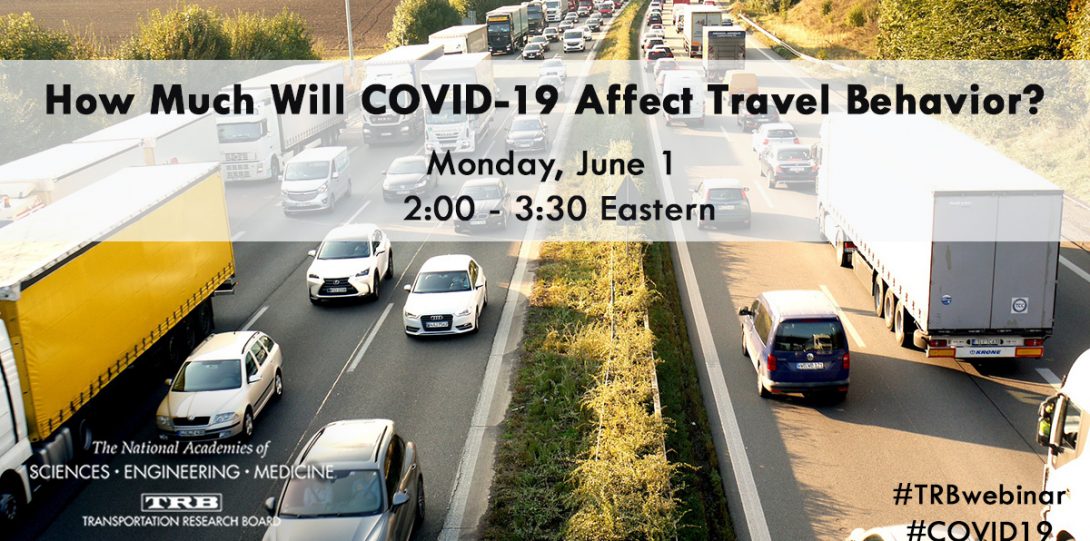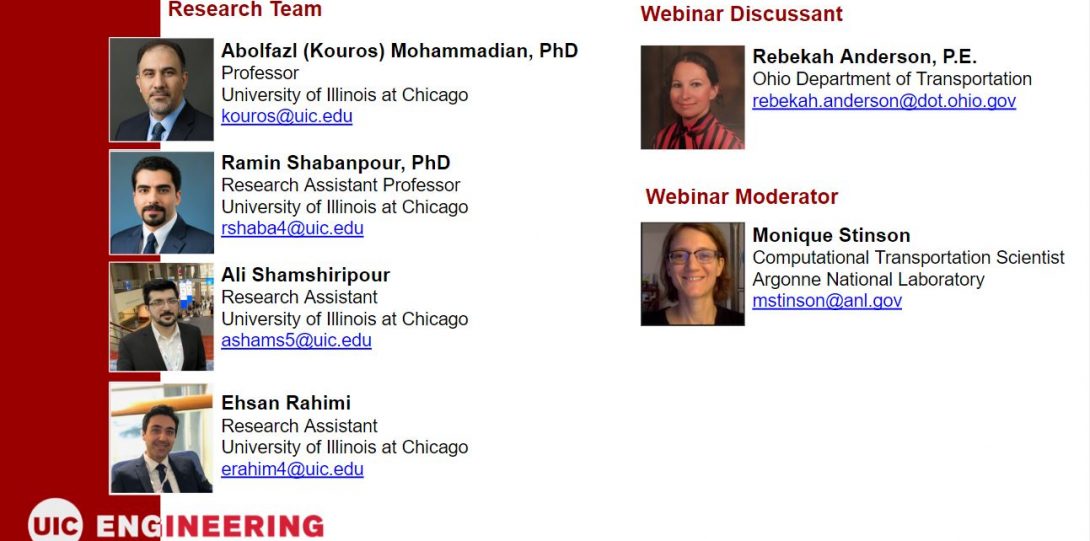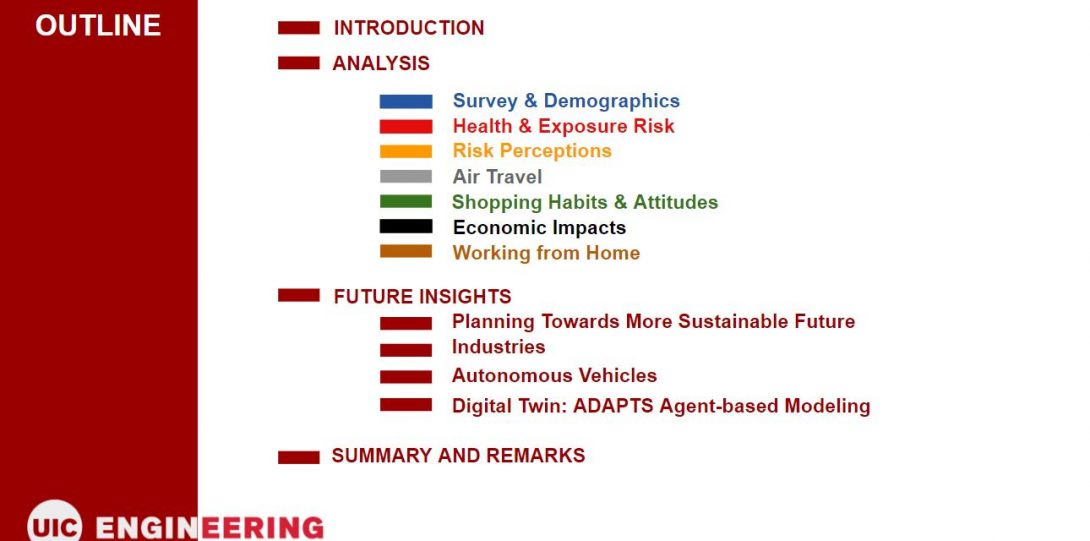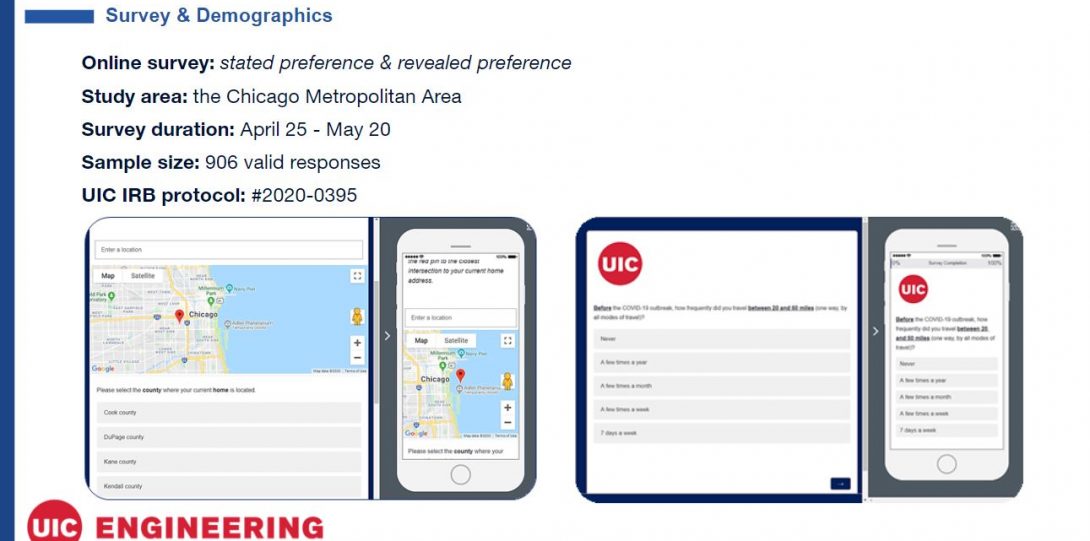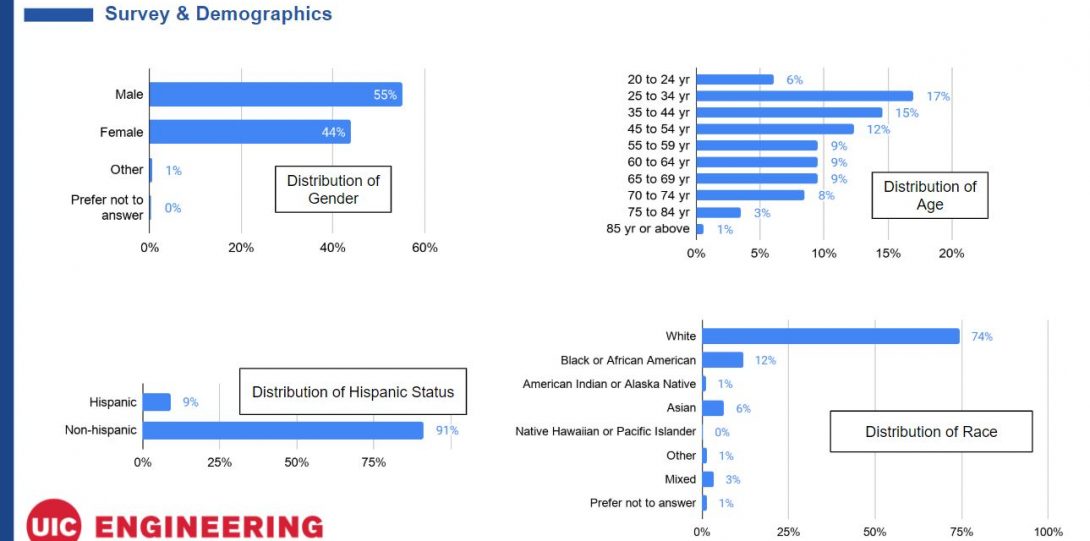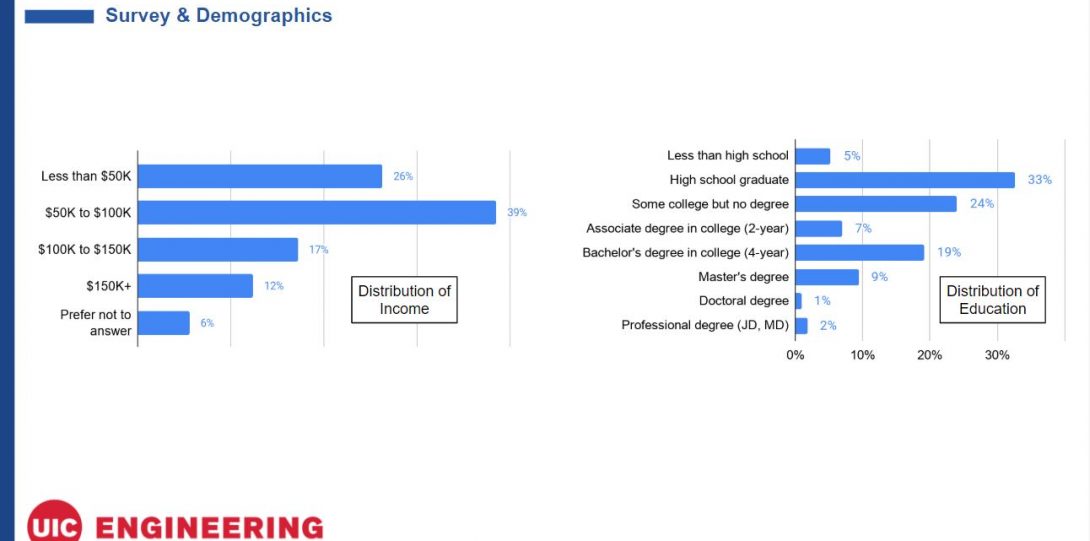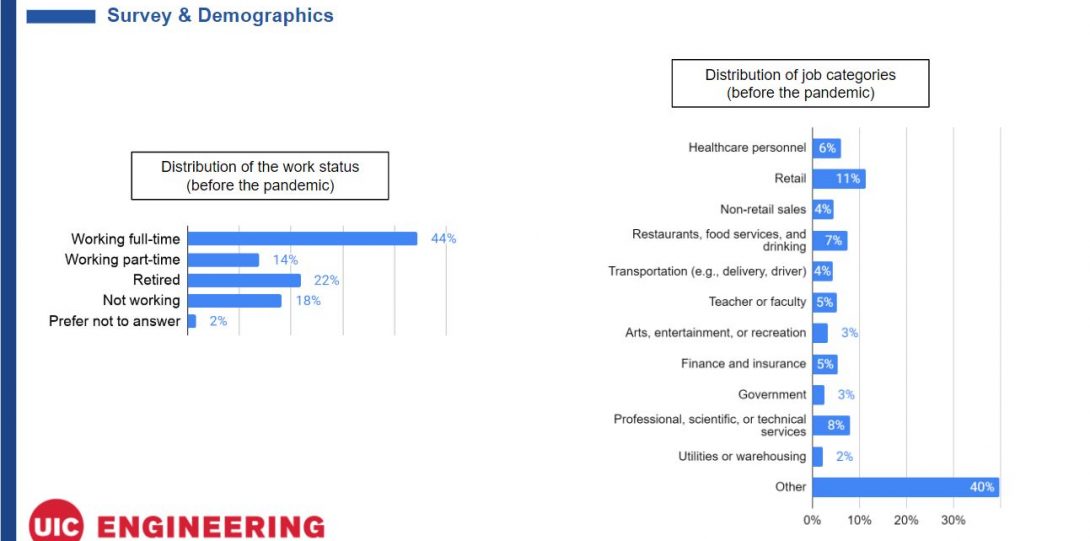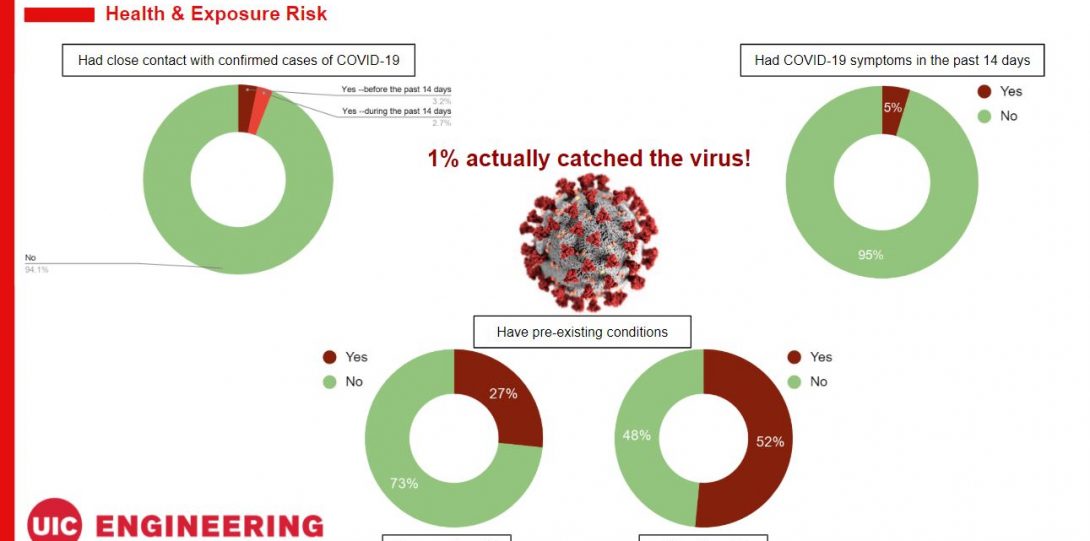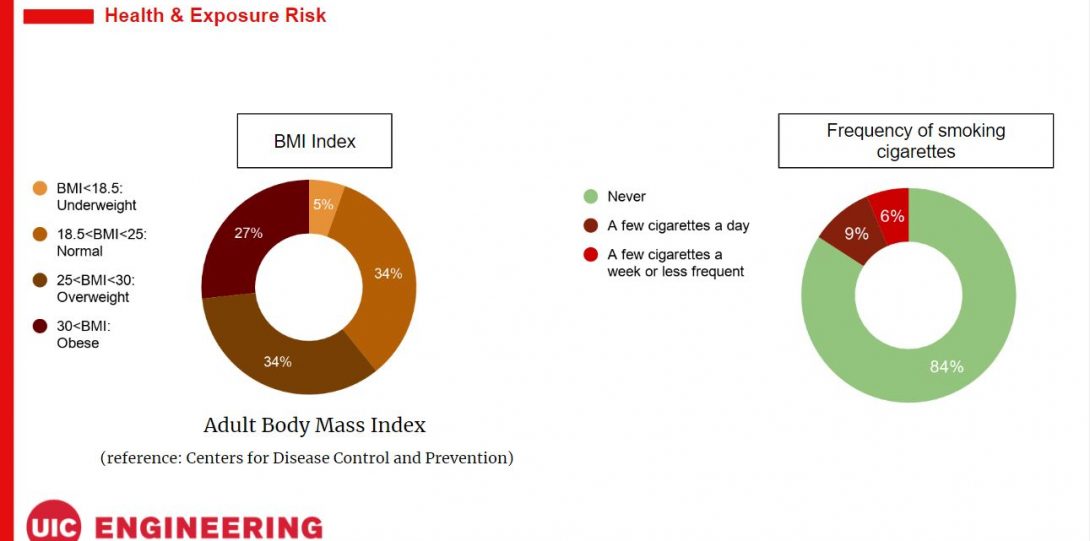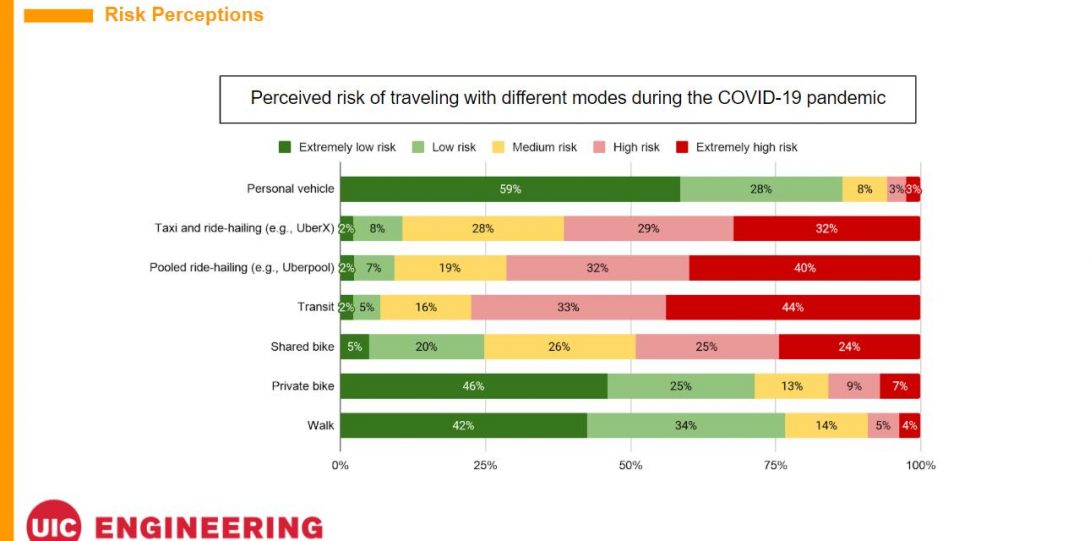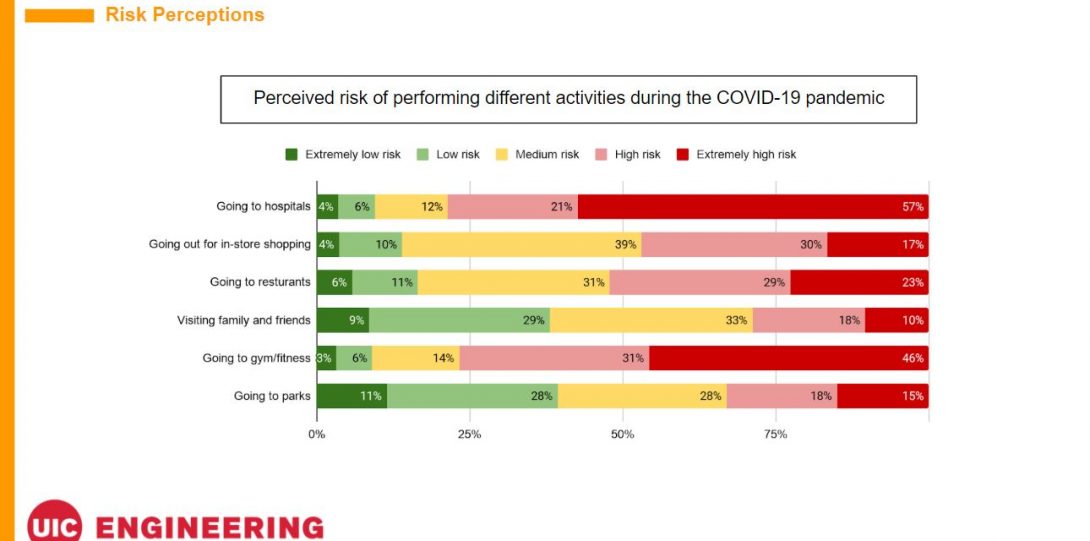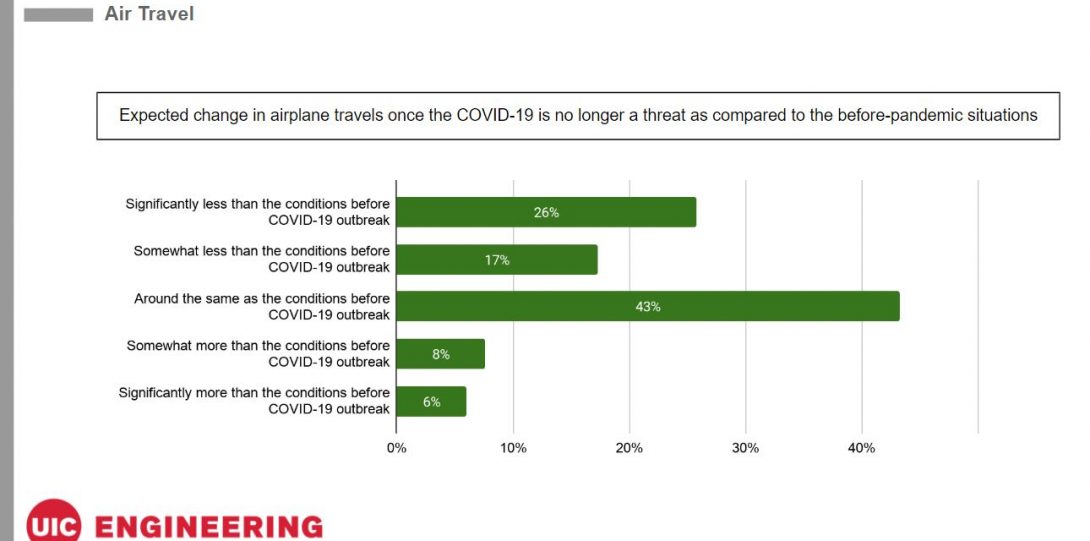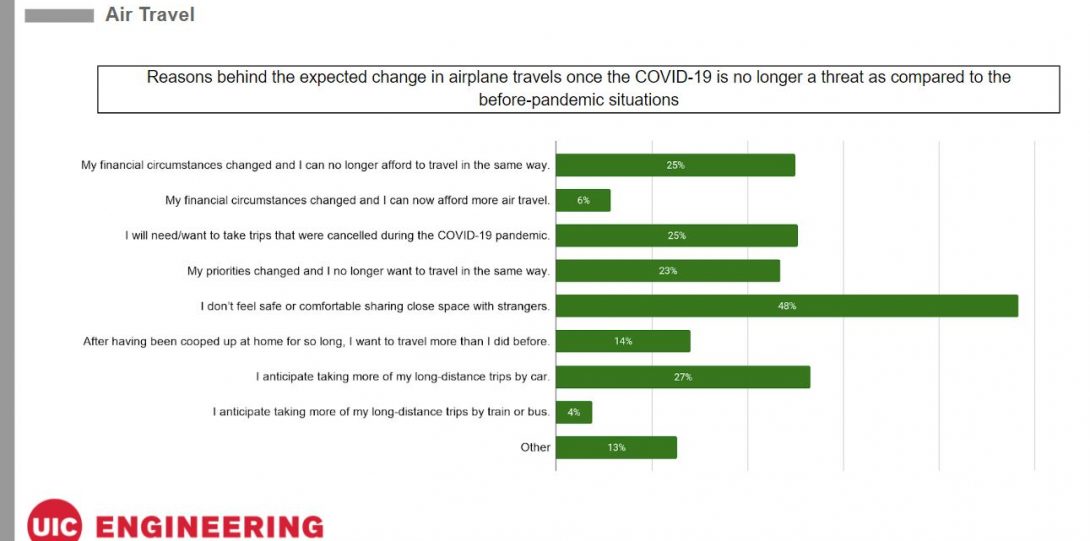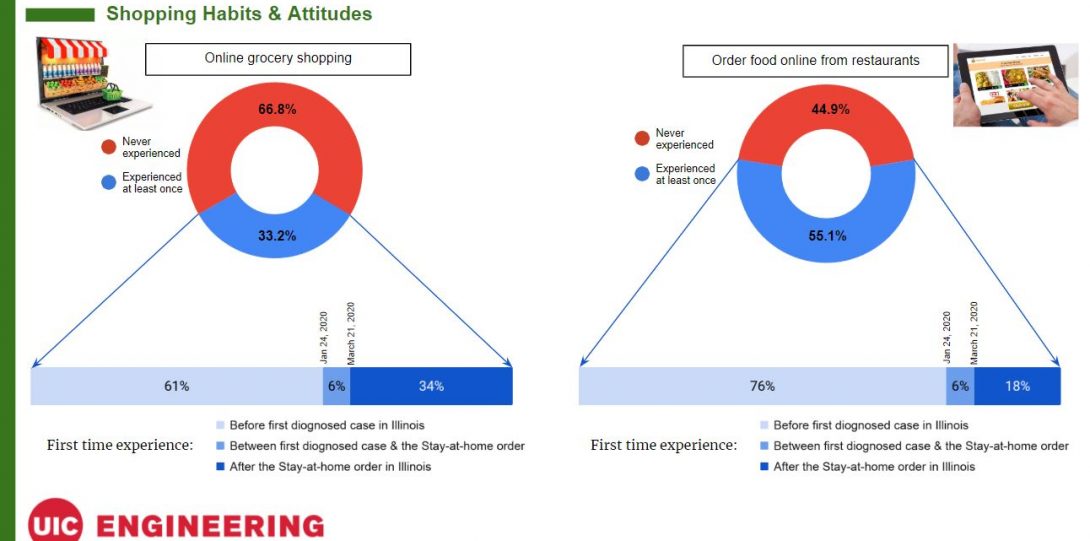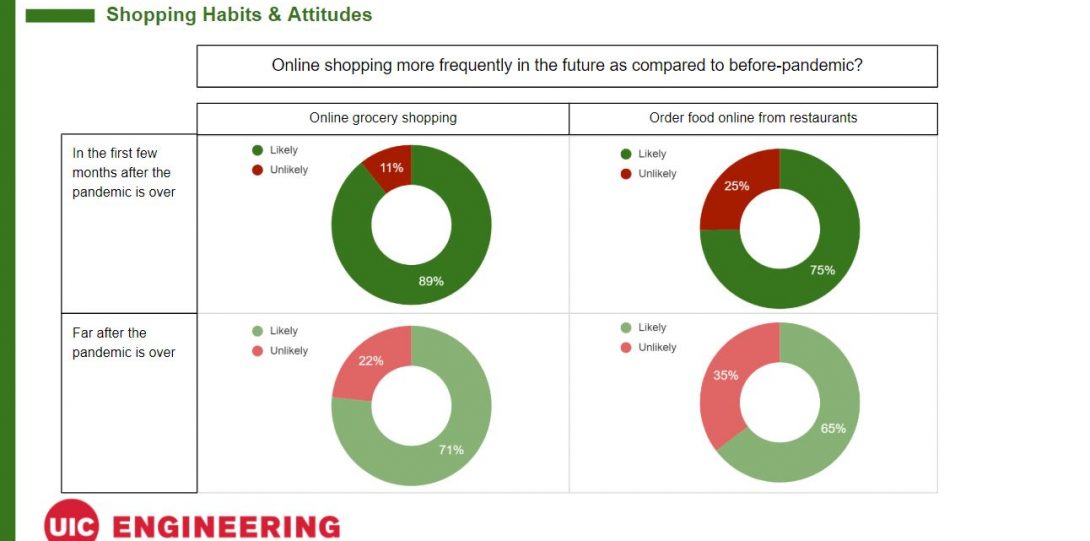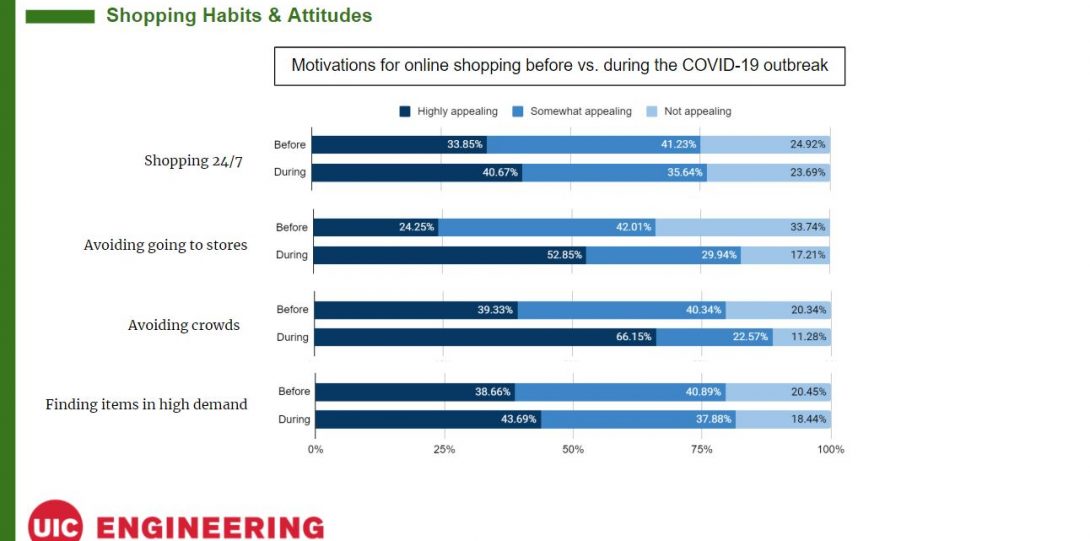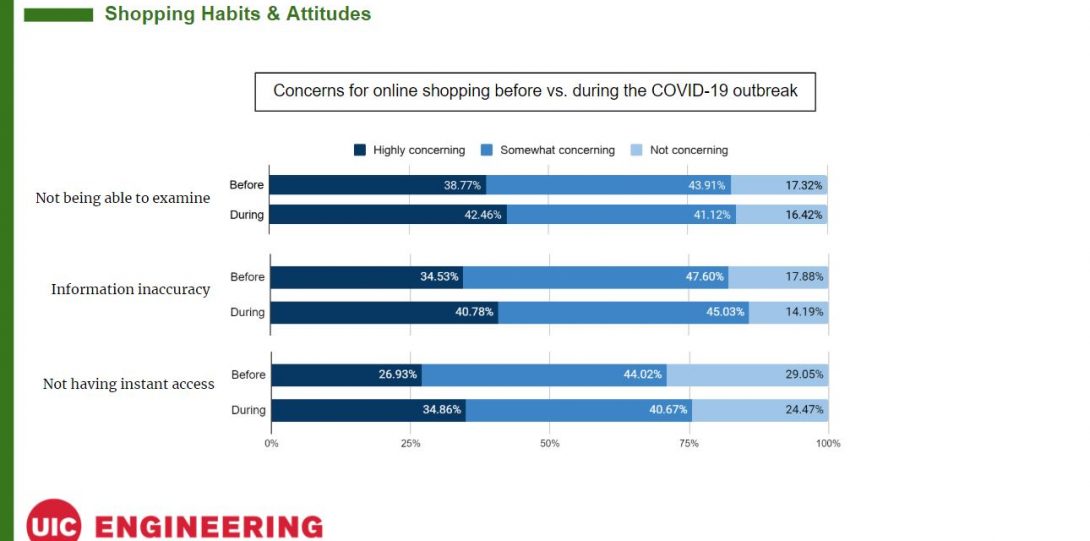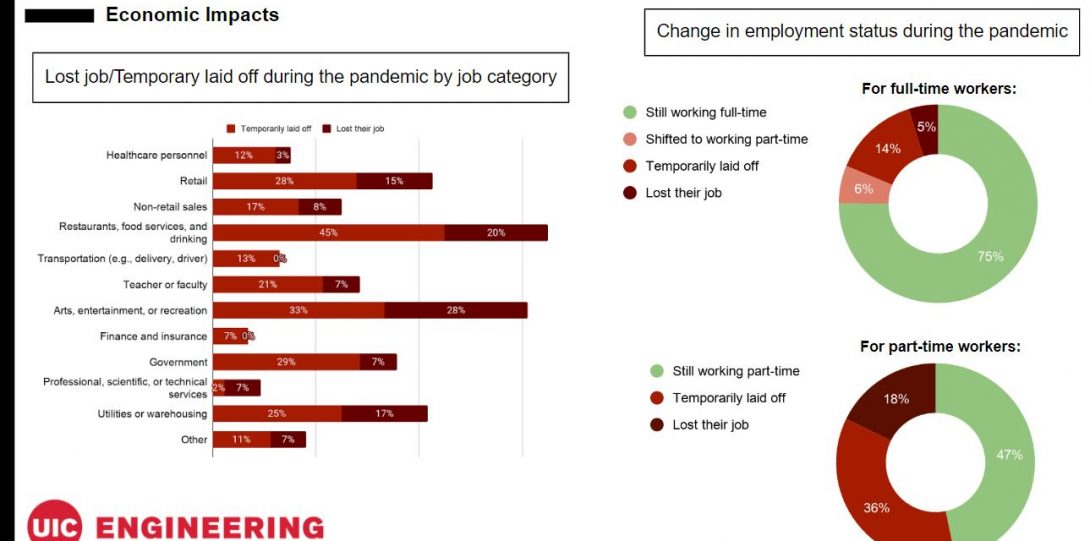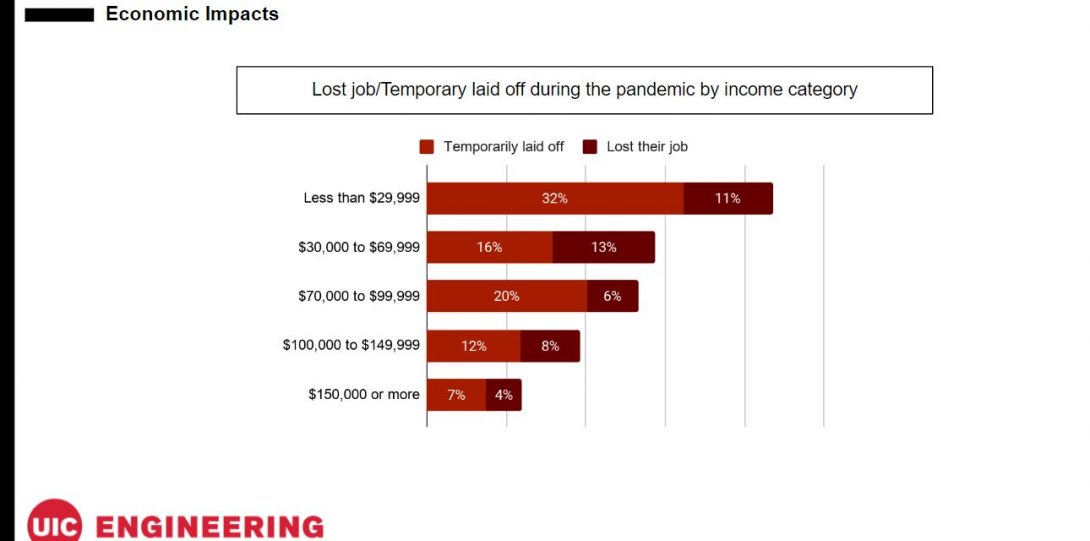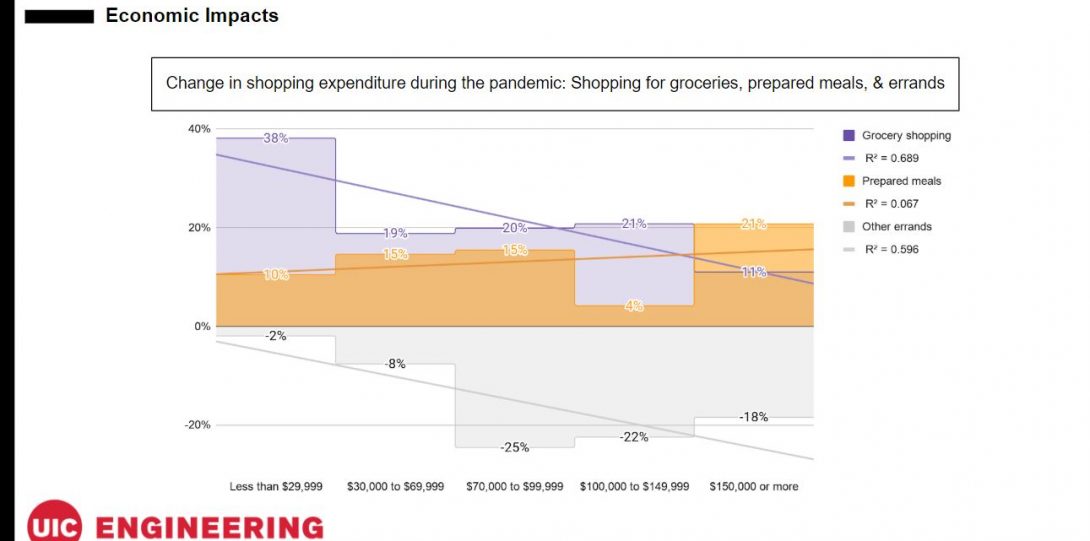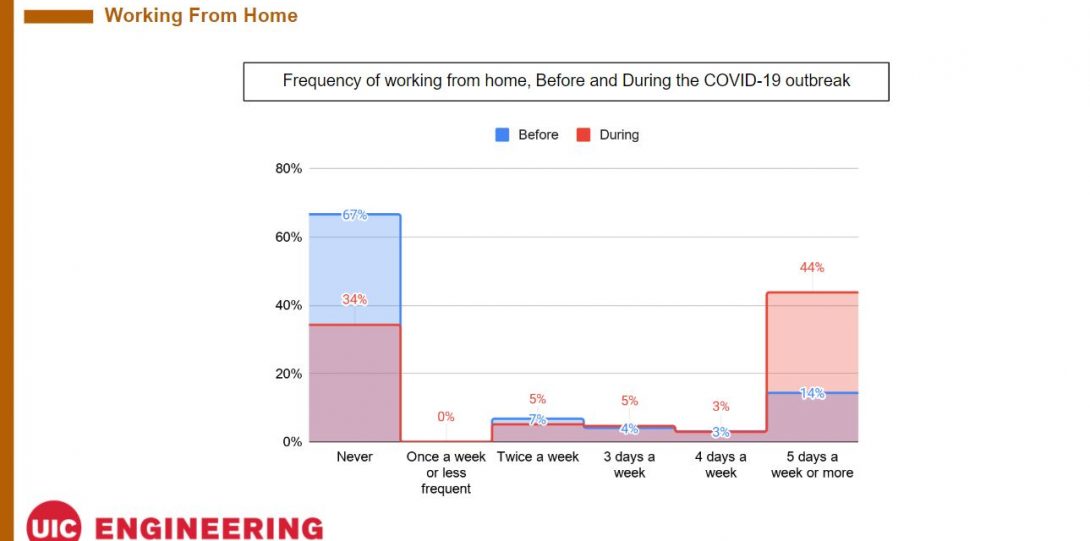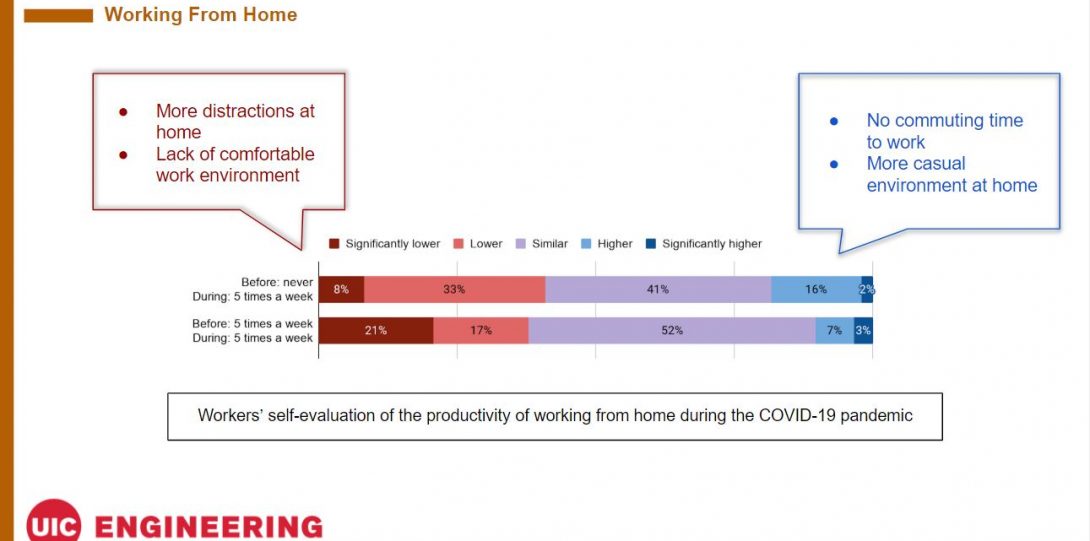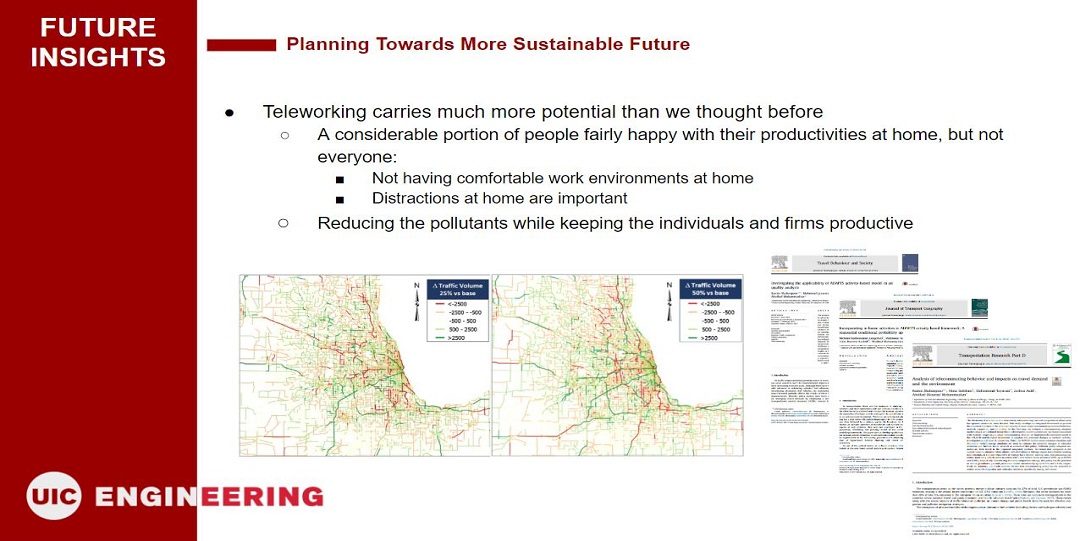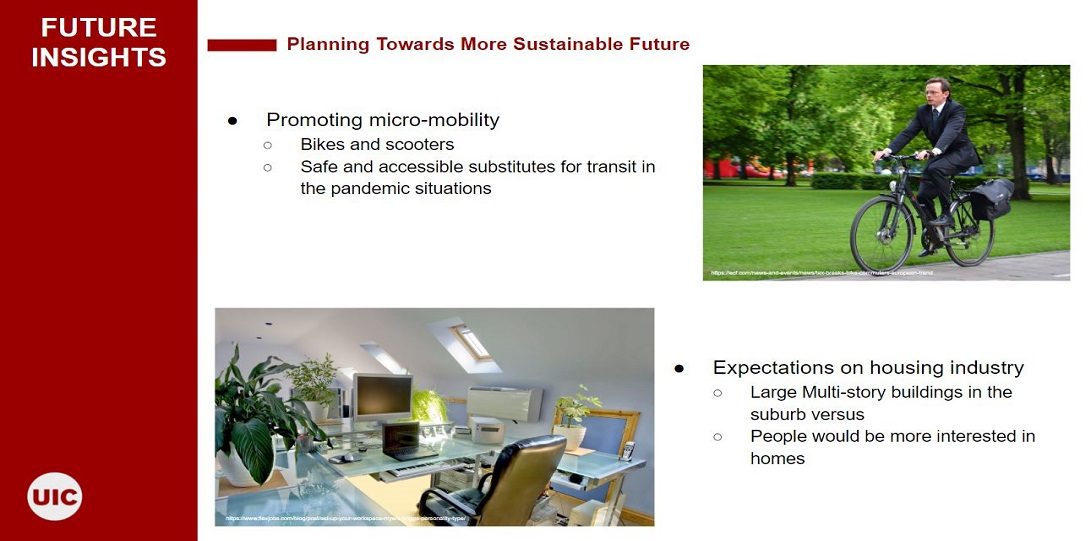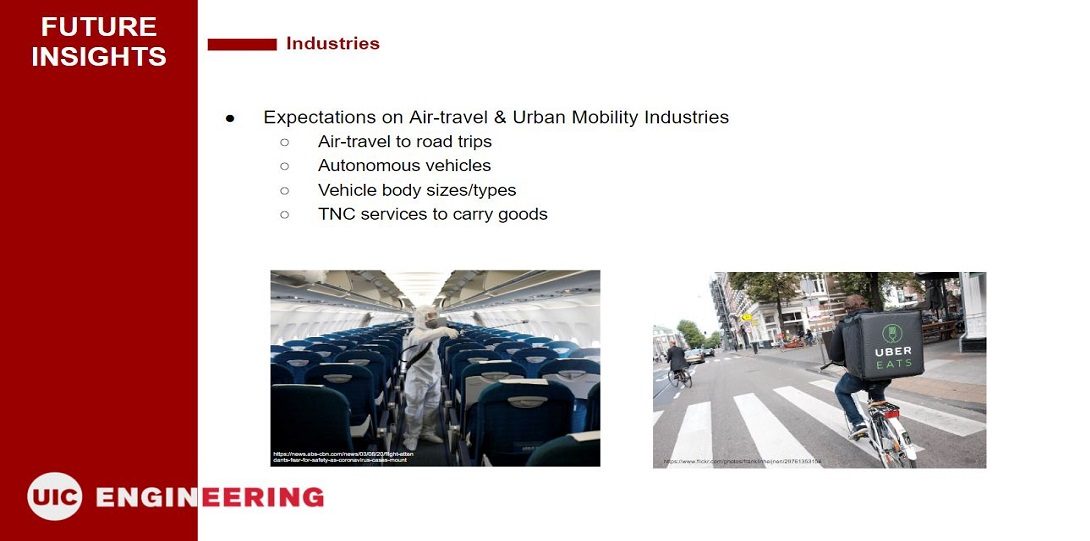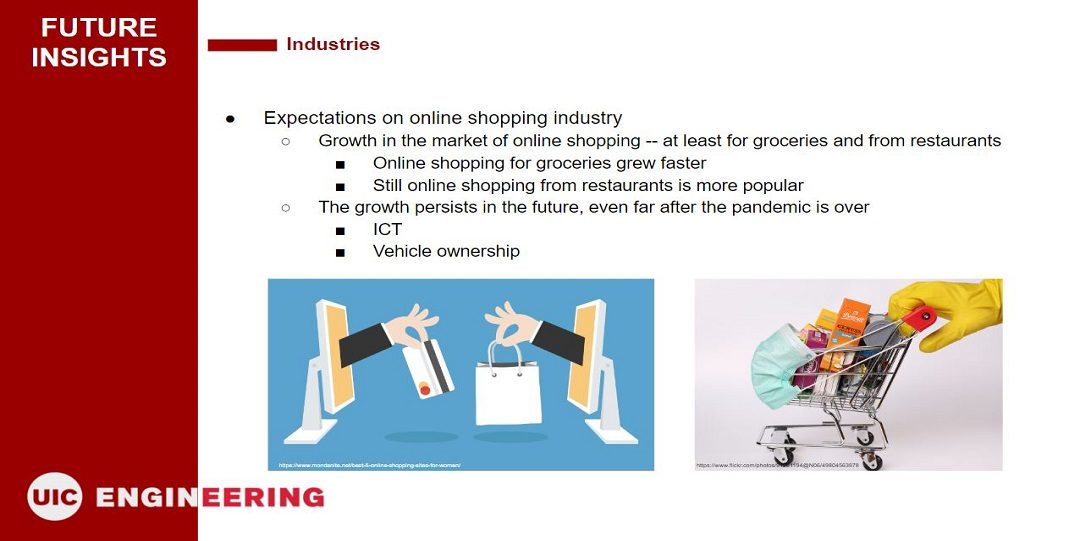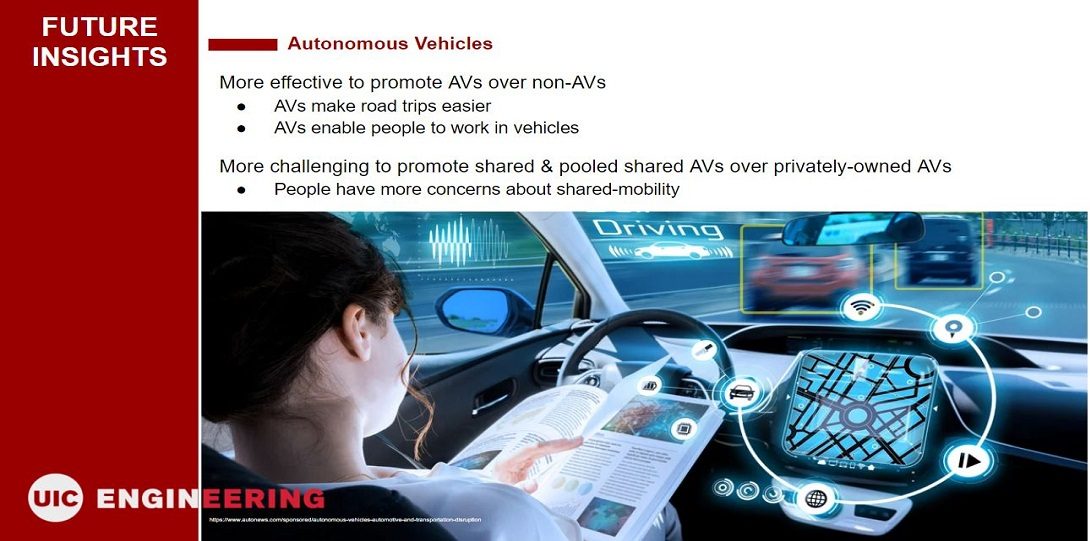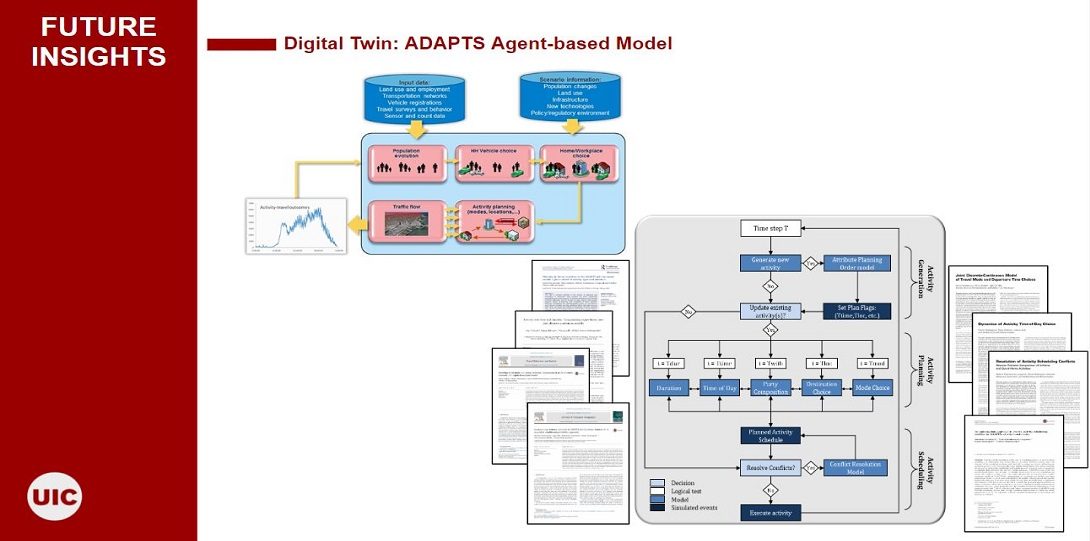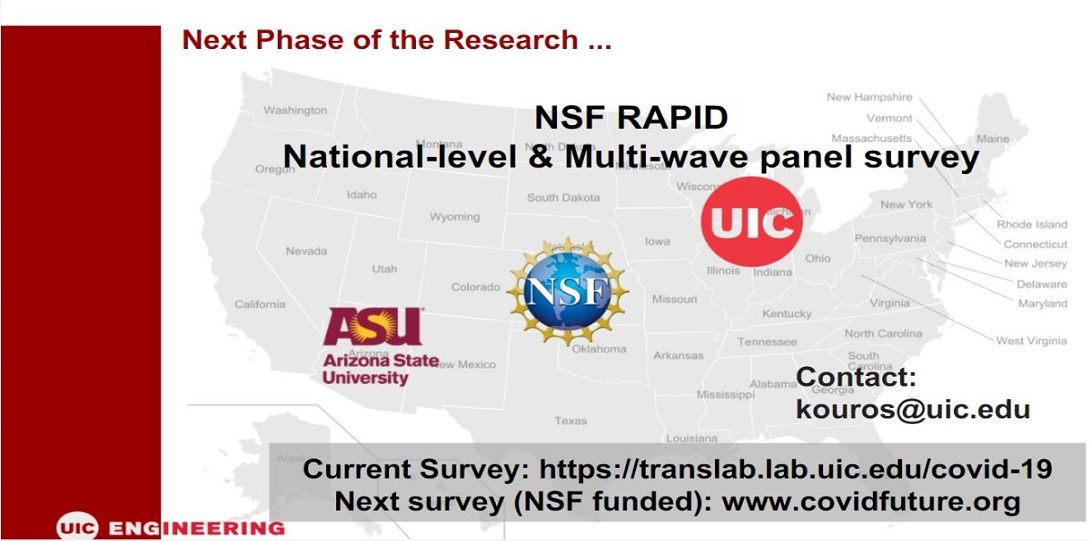Research summary
The coronavirus disease (COVID-19) pandemic has caused upheaval around the world, and has caused our daily routines to change quickly. Instead of commuting to work, employees are telecommuting. Schools are shuttered and students are taking classes online. Even shopping occurs online, often with a stranger choosing one’s groceries. Many of these systems were already established, however, we are depending on them more than ever before. In this research, we are looking for answering the following questions:
- How will these changes impact our future?
- Which behavioral changes will be long-lasting, and for whom?
- How, if at all, are the attitudes that underpinned our lifestyle are shifting in this crisis? Will these shifts be long-term?
The goal of the current project is answer to these questions. The first step of the project was a survey of over 1000 respondents in Chicago region, in that we attempted to understand participants’ attitudes and behavior before and during the COVID-19 pandemic, as well as their expected behavior after the pandemic. The survey included retrospective questions related to attitudes and behavior before the pandemic (e.g., being risk averse, attitudes toward the economy, environment, technology), and sections about attitudes and preferences including activity and travel behavior (e.g., scheduling, commuting and discretionary travel choices pre-, during, and post COVID-19 as well as long-distance travel), socio-demographics (e.g., employment type and status, and household composition), and social networking and social behavior.
The next step involves a national-level study in collaboration with the Arizona State University and funded by an NSF RAPID grant. We will attempt to develop new longitudinal analytical methods, using an extensive, nationwide multi-wave survey focused on social dynamics, attitudes, and the behavior of American households before, during, and after the COVID-19 pandemic. The five fundamental directions of the research are:
- understanding the dynamics of individual and household behavior and its relationship to household’s long-term contexts such as residential location and vehicle ownership;
- longitudinal analysis of the behavioral shifts before and during the process;
- a comprehensive examination of activity and travel (re)scheduling dynamics and their spatial and temporal aspects;
- examining the role of being risk-averse vs. risk-taker on behavioral dynamics, and
- a comprehensive examination of the role of intra-household and social network interactions in shifting attitudes.
Research Team
- Dr. Abolfazl (Kouros) Mohammadian, PI and Lab Director, kouros@uic.edu
- Ali Shamshiripour, PhD, ashams5@uic.edu
- Ehsan Rahimi, PhD, erahim4@uic.edu
Our Publications
- “How is COVID-19 reshaping activity-travel behavior? Evidence from a comprehensive survey in Chicago”, Published in Transportation Research Interdisciplinary Perspective. Click to download!
- “Perceived risk of using shared mobility services during the COVID-19 pandemic”, Published in Transportation Research Part F: Traffic Psychology and Behaviour. Click to download!
TRB Webinar Presentation Video
Webinar outline and presenters
- How our transportation behaviors are affected during the COVID-19 pandemic: Abolfazl (Kouros) Mohammadian, University of Illinois at Chicago
- Results of the Chicago COVID-19 survey: Ali Shamshiripour, Ehsan Rahimi, and Ramin Shabanpour, University of Illinois at Chicago
- How travel behavior in America may look after the pandemic: Abolfazl (Kouros) Mohammadian, University of Illinois at Chicago
- Summary and further research: Rebekah Anderson, Ohio Department of Transportation
- Questions and answers: Moderated by Monique Stinson, Argonne National Laboratory
2020 BTR Conference Presentation 1: "How Covid-19 Pandemic is Reshaping our Activity-Travel Behavior?"
In this presentation, Professor Mohammadian discussed the result of recently collected data in Chicago focusing on the impacts of COVID-19 pandemic on Travel Behavior.
Also, you can find more information about the conference on the conference website!
2020 BTR Conference Presentation 2: "Investigating the Effects of Convenience and Distractibility on the Intentions to Work from Home After the COVID-19 Pandemic"
Ali Shamshiripour, a Ph.D. candidate and research assistant at UIC, presented our current research on COVID-19 pandemic which is designed to investigate the future of telecommuting with a focus on employees’ productivity while working at home. In particular, we aim to understand what underlying factors motivate or deter workers to telecommute and how such factors contribute to their decision to continue telecommuting when the pandemic is over. We seek evidence to support the hypothesis that the current productivity level of working from home mediates the relationship between the perceptions of people towards the suitability of their work environment at home and their intention to increase their telecommuting frequency in the future.
2020 BTR Conference Presentation 3: "Understanding the Impacts of COVID-19 Pandemic on Dynamics of Online Shopping Behavior"
Ehsan Rahimi, a Ph.D. candidate and research assistant at UIC, presented our recent findings on the dynamics of online shopping behavior and changes due to the COVID-19 pandemic.
According to the objective of this study, multiple questions were designed in our comprehensive survey to inquire about people’s online shopping habits before the pandemic, the potential adjustments made during the pandemic, and their expectations about 28 their future behavior in the post-pandemic situation. Responses to these three questions form the dependent variables of this research. In order to capture the complex interactions of these variables, they are modeled through a joint framework while considering potential endogenous effects of past and current experiences on future behavior. Capturing such dynamics imposed by the current crisis is critical for updating our travel demand models so that they can be used as reliable and useful planning tools towards sustainable and resilient cities.
Our Research in Media
- “What will America look like after pandemic ends?”, UIC Today, June 02, 2020. Read more!
- “Congress turns to surface transportation”, POLITICO, June 02, 2020. Read more!
- “Post-Pandemic, You’re More Likely to Take More Road Trips”, CAR & DRIVER, June 06, 2020. Read more!
- “UIC Study Analyzes How COVID-19 Has Changed Travel Behavior, Lifestyles”, WTTW, June 14, 2020. Read more
- “2020’s Best & Worst Cities to Drive in”, WalletHub, September 1, 2020. Read more!
- “5 Changes in Behaviour Brought on by COVID-19”, medium, October 30, 2020. Read more!
- “Lessons Continue to Be Learned in TRB Events on COVID-19”, The National Academies. Read more!
- “Covid-19 Pandemic Likely Improved Your Commute to Work”, The WSJ, January 03, 2021. Read more!
- “How Covid-19 disrupts normal modes of working, socialising, travelling in youth”, Yahoo! NEWS, June 2021. Read More!
- “As urban life resumes, can US cities avert gridlock?”, The Conversation, June 2021. Read more!
Download COVID-19 Database
We have recently released our NSF RAPID survey data. It includes more than 8,000 responses, fully weighted to be nationally representative, and a comprehensive survey instrument covering every aspect of life. This database also offers a unique and comprehensive data set about human behaviors, choices, and patterns during the pandemic and how behavioral patterns may evolve and adapt in a post-pandemic future. We hope this will encourage other researchers to use our data to support planning for the impact of COVID-19 on the transportation sector.
Download the database: Download link!
Database citation:
Salon, Deborah; Conway, Matthew Wigginton; Capasso da Silva, Denise; Chauhan, Rishabh; Shamshiripour, Ali; Rahimi, Ehsan; Mirtich, Laura; Khoeini, Sara; Mohammadian, Kouros; Derrible, Sybil; Pendyala, Ram, 2021, “COVID Future Wave 1 Survey Data v1.0.0”, https://doi.org/10.48349/ASU/QO7BTC, ASU Library Research Data Repository, V1, UNF:6:Z61cxFCm14zzNxiO4fCbfA== [fileUNF]
